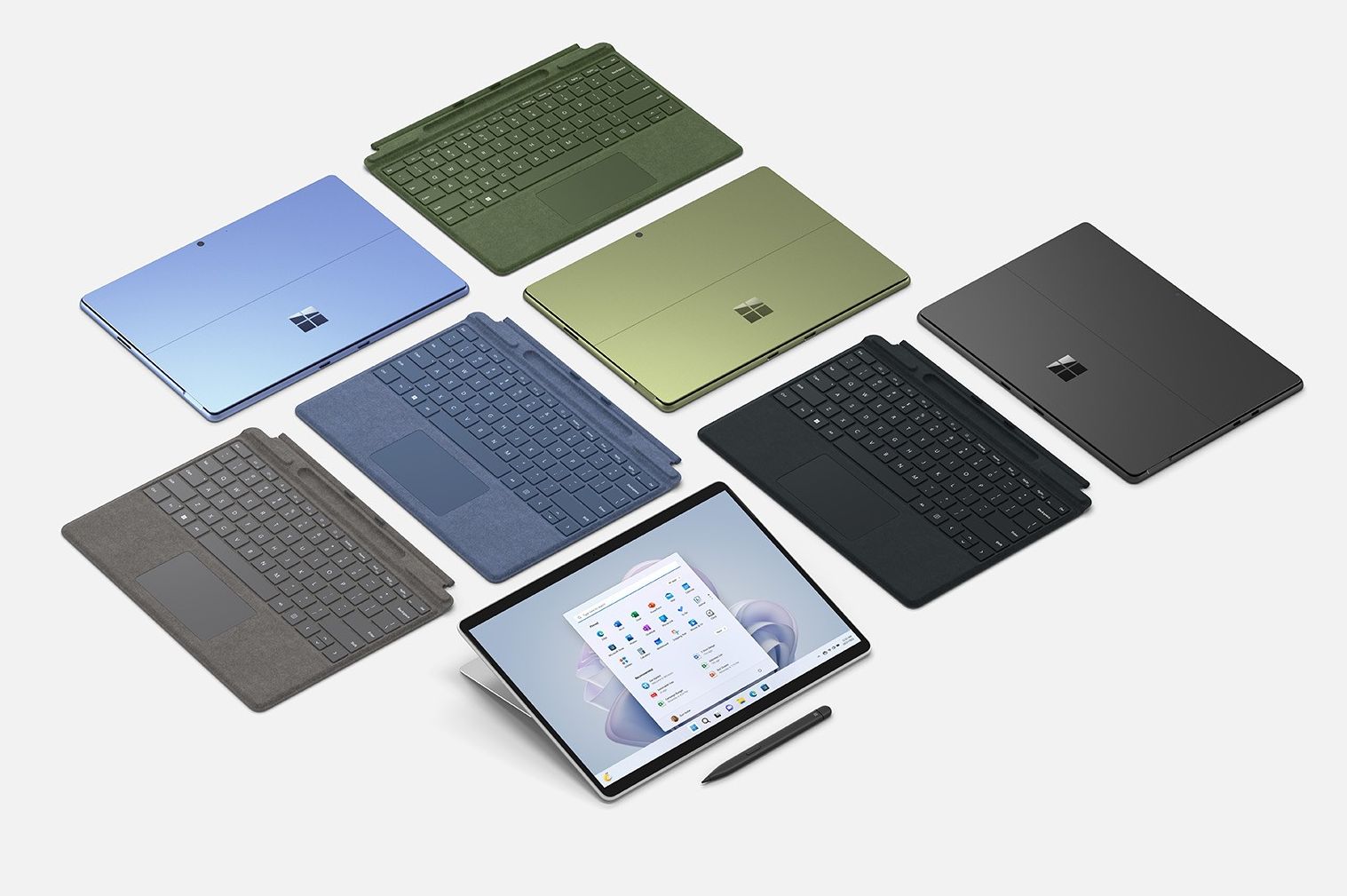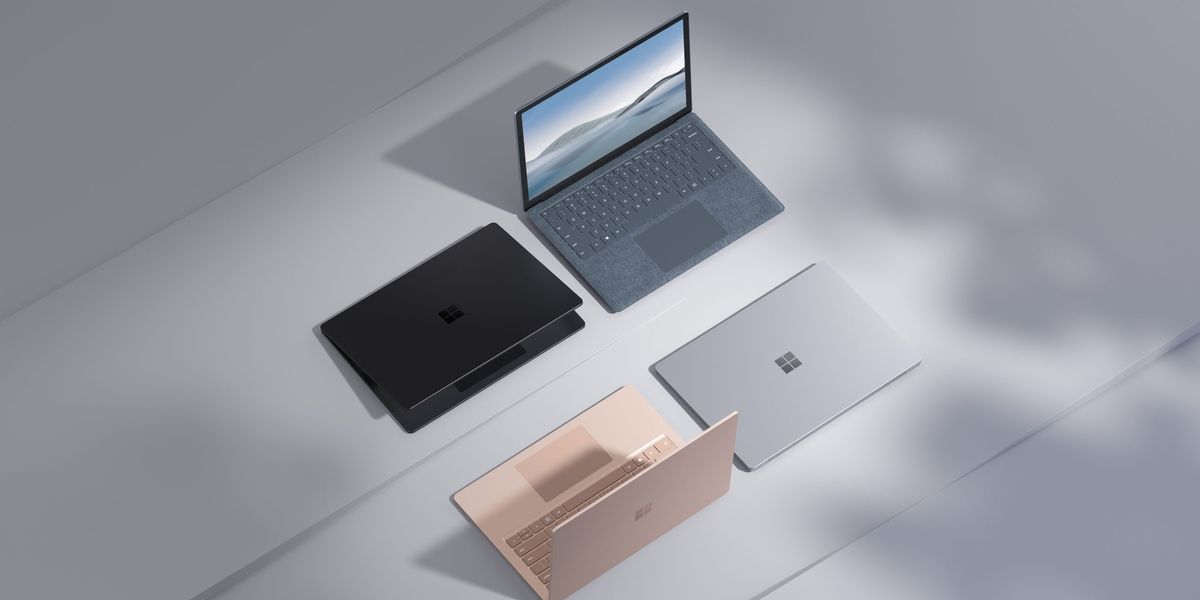Microsoft has merged its Windows and Surface departments into a single team, which will be overseen by Pavan Davuluri — a 23-year veteran inside the Redmond company who was a driving force behind the recent custom-designed Surface processors developed in collaboration with Qualcomm.
According to an internal memo obtained by The Verge, Microsoft says merging the two teams will “enable us to take a holistic approach to building silicon, systems, experiences, and devices that span Windows client and cloud for this AI era.”
Panos Panay spearheaded the development of the Surface Laptop, Surface Pro, and Surface Studio line-up while also working on the design of Windows 11
GETTY IMAGES
This isn’t the first time that Surface hardware and Windows software development have been spearheaded by a single voice. Panos Panay, who kickstarted the Surface line within Microsoft, worked as Chief Product Officer and oversaw the creation of the latest Surface hardware and Windows 11 simultaneously. The executive announced his departure suddenly last year.
With Panos Panay out the door, Microsoft decided to split its hardware efforts under the Surface brand name and development of Windows 11 software updates within the US company. The appointment of Pavan Davuluri marks a return of a single vision pushing forward Windows 11 and future laptop and PC development.

Unlike the enterprise-focused version of the Surface Pro 10, the consumer variant is widely tipped to arrive in a series of exciting new colourways
MICROSOFT PRESS OFFICE
Microsoft will showcase the latest fruits of its Windows 11 and Surface teams at an event on May 20, 2024.
The Redmond-based company is staying tight-lipped about exactly what to expect from the announcement, but the reliable tipster Zac Bowden of WindowsCentral claims we’ll see consumer-facing variants of the Surface Pro 10 and Surface Laptop 6. Both new PCs were unveiled earlier this month with enterprise-focused models, dubbed Surface for Business.
Surface Pro 10 for Business arrives with a speedier Intel Core Ultra processor and dedicated Neural Processing Unit (NPU) to handle any AI-related tasks — freeing up bandwidth on the CPU, the best webcam ever shipped in a Surface device, and a new coating for the screen to remove glare.
Microsoft has not used an OLED panel for the screen of either of the new Surface devices, despite widespread rumours that it would upgrade from LED. OLED offers deeper shades of black and more vibrant colours. Since each individual pixel serves as its own light source, it can offer battery life improvements when using dark modes in apps too.
Both Surface Pro 10 and Surface Laptop 6 for Business are the first PCs launched by Microsoft with a new key dedicated to Copilot. The arrival of the Copilot key marks the first overhaul to the Windows keyboard since the introduction of the Start button back in 1994.
For those who don’t know, Copilot is powered by the same technology that fuels ChatGPT and can tweak system settings within Windows, summarise lengthy reports into easy-to-read bullet points, rewrite emails to change tone, and dream up itineraries and recipes based on a brief written prompt. Some features are locked behind a monthly subscription of £19.
According to sources speaking to WindowsCentral, the consumer versions of Surface Pro 10 and Surface Laptop 6 will be powered by ARM chipsets from Qualcomm. ARM architecture is used by a growing number of high-profile companies to design powerful and efficient chipsets, including Apple’s M-branded silicon found inside the latest generation of MacBook, iMac, and Mac Pro.
Microsoft has released ARM-based devices in the past, but these have been hampered by widespread compatibility issues. However, in the last year, likely due to the path forged by Apple, a number of mainstream developers have started to adopt Windows on ARM, including Google Chrome, WhatsApp, Photoshop, 7zip, and more.
“My sources say that compared to the business variants, the Surface Pro 10 and Surface Laptop 6 will feature true all-day battery life and will rival the iPad Pro and MacBook Air in terms of performance and efficiency,” Zac Bowden writes at WindowsCentral, suggesting this could be a very interesting year for Surface fans.
Aside from the new hardware, Microsoft is also tipped to announce new Artificial Intelligence (AI) features for its Windows 11 desktop operating system.
Many of these features will be baked into its Copilot assistant, helping you quickly find documents, emails, and system settings using natural language. Copilot is built on the same underlying technology as ChatGPT, so it can also used to quickly summarise lengthy documents into bullet points, help adjust the tone of emails, and more.
Although Copilot is available to use free of charge within the operating system, Microsoft has locked away the ability to rely on its AI helper in certain applications — like Microsoft Word and Excel — behind a monthly subscription. It’s unclear whether all of the features due to be announced at the digital event will be rolled out to everyone or only paid subscribers.
LATEST DEVELOPMENTS

Laura Adams is a tech enthusiast residing in the UK. Her articles cover the latest technological innovations, from AI to consumer gadgets, providing readers with a glimpse into the future of technology.








